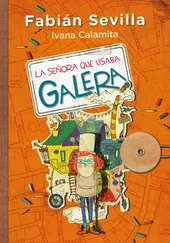T he village cemetery is located on a square plot of land between two summer homes. Behind it is an abandoned smallholding covered in emerald-green grass and, farther back, Silveira Hill, with a winding dirt driveway announcing a future housing development. The incandescent green of the vegetation makes it look as though it’s about to catch fire under the sun. The graves are blocks of cement, bare or covered with tiles or flagstones, almost devoid of adornment. Here and there is a silver angel statuette or a cross decorated with gold paint or colorful stones. Not many graves have photographs on them, and most of the flowers are plastic. He tries to walk through the middle of the cemetery but can’t. The graves are so close together that the few available passages turn out to be dead-ends. The labyrinthine layout forces him to jump over graves and lean against them as he looks for a way through. More than once he has to retreat and find another path. At times there isn’t even enough space to maneuver and turn around. He tries using the edges of the cemetery, but the graves touch the wall. They appear to have been repositioned throughout the years so that more bodies could be buried there, until every possible space has been used and all that is left are a few holes and furrows, like a faulty puzzle. He spends a long time trying to get to the back of the cemetery, where, craning his neck, he can see the oldest and simplest graves, among which are some small, worn gravestones atop mounds of soil covered with clover and other weeds. From afar, two or three of these gravestones appear not to have any inscriptions. He trips over a grave that is no more than a little fence of bricks and falls onto another, bigger one, smashing a vase of plastic flowers. He picks up the flowers and tries to rearrange them as best he can on the dark slab of imitation marble covering the grave. He looks around for a gravedigger but doesn’t see anyone.
• • •
T he sun is almost setting behind the hills in the neighborhood of Ambrósio, and everything in the bay dozes under the rosy light. He pulls on his Speedos, gets his swimming goggles out of a backpack, and takes the stairs down to Baú Rock, feeling the roughness of the cement and warm stone on the unaccustomed soles of his feet. Boats and flocks of gulls bob up and down on the shiny water, and the ocean’s vapors instantly unblock his nasal passages. He jumps carefully from the rock, so as not to cut his feet on the tiny barnacles, and his body is annulled by his own reflection, shattering the water’s filmy surface. His feet disappear with a swallowing noise, and concentric circles ripple out for a few yards before he reappears much farther along, near an anchored boat, and starts swimming out to the deep. He swims following the coast, happy with the freedom of the cold, salty, endless pool, a little wary of the growing darkness and the probable proximity of some marine animal. It is almost night when he leaves the water. He is relieved, still a little giddy from the effort and musing over everything he thought about while swimming. He has decided to sell his car.
The waning moon is rising behind the hill when he gets his map of the town and heads for Nestor Gas Station. He talks to the manager and, in exchange for a commission of three hundred reais, leaves the Fiesta parked next to a flower bed at the entrance to the gas station with a for-sale sign printed out in an Internet café and taped to the window. The market value of the car is fifteen thousand, but he offers it for fourteen. He buys a can of guarana soda in the corner shop and asks the girl at the cash register about gyms in the town. There are three main ones. He marks them all on his map. Academia Swell is opening a new heated indoor semi-Olympic pool, the first in the region.
With Beta on her leash, he walks the six blocks from the gas station to Bauru Tchê and orders a cheese-and-chicken-heart sandwich. This time the owner of the trailer strikes up a conversation and introduces himself. His name is Renato. Three girls are drinking beer at a table, and the TV on the counter is showing the eight o’clock soap opera.
Who’s the mutt? shouts Renato.
My dog. Beta. She was my dad’s, but now she’s mine.
Didn’t he want her anymore?
He passed away.
Oh, pardon me. Sorry to hear it.
It’s okay.
Renato asks where he is living and ruminates on his answer as if he really doesn’t care much. The subject is redundant, and people come and go from these seaside dwellings year after year. Registering who comes and who goes is like talking about the weather, which is what he does next.
It rained all summer. Then March comes along, and it’s all fine and dandy, sun every day, no wind. It’s not fair.
His wife prepares the sandwich on a hotplate behind the counter, wearing an apron and a hairnet. They are going to close the snack bar in two weeks’ time. He says this year wasn’t very good. There won’t be much left after he’s paid the rent. He plans to return to Cachoeirinha, where his home is.
Hey there.
The person who says this is one of the girls sitting at the next table, and the voice is familiar. It is the tallest of the three who is looking at him. Her curly hair is down, and he had memorized it on top of her head. It would be silly to pretend that he has only just noticed her, as she is sitting right in front of him at the next table, and it would be equally ridiculous to try to make her understand, under the circumstances, that only her voice or some more complex form of interaction could have revealed her identity to him. It is an explanation that he has learned to give a little further down the track, when he has had more contact with a person. People tend not to believe him straight up, and the bad first impression can almost never be undone.
Dália.
He pronounces her name in a cautious, almost interrogative tone. It is inappropriate, but he can’t avoid it in these situations.
I wasn’t going to say anything, man, but you’re pretending not to see me so openly that I couldn’t keep quiet.
Sorry. My mind was elsewhere.
Well, then your mind’s always elsewhere, because I passed you on the beach yesterday, and you acted as if you didn’t see me then either.
He could say his mind is always elsewhere or apologize a second time, but neither solution is satisfactory, the first because it is a lie, the second because it is unfair. Until a few years ago, he was always apologizing for not recognizing people — it was part of his routine — but he started feeling silly and stopped. The forgetting isn’t his fault. The only thing he can do is keep quiet in the face of people’s indignation and wait to see what happens next. He has learned that most people can’t stand not being recognized. There are some who rise above the momentary awkwardness, who don’t take themselves so seriously that they are truly offended, and joke about it, and even make an effort to situate him and provide him with the context of their previous encounters even though they aren’t aware of his handicap. And there are some who take offense and end the conversation, even going as far as never speaking to him again or paying him any kind of attention.
Come join us, says Dália.
He moves to the empty chair at their table. The boy brings him his sandwich, playing his waiter role ceremoniously. The girls talk as he eats. He tries to participate in the conversation between one bite and another. One of the friends, Neide, is thin and quiet. She lives in town, worked the summer in a little bikini shop, and doesn’t know what she is going to do for the rest of the year. The other one, Graziela, is plump, an attention grabber, and is there only on holidays. She is heading back to Porto Alegre in a few days to continue her law degree. Compared to Dália, neither of them is attractive. He never has conflicting impressions about a woman’s face on different occasions. A beautiful woman will be beautiful each time. For those who remember, it isn’t always so.
Читать дальше












